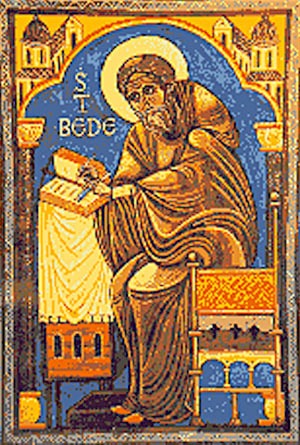p. 18
to form an endless variety of aspects or modes. The mind of man is one of the modes of infinite thought; the body of man one of the modes of infinite extension. Through reason man is enabled to elevate himself above the illusionary world of the senses and find eternal repose in perfect union with the Divine Essence. Spinoza, it has been said, deprived God of all personality, making Deity synonymous with the universe.
German philosophy had its inception with Gottfried Wilhelm von Leibnitz, whose theories are permeated with the qualities of optimism and idealism. Leibnitz’s criteria of sufficient reason revealed to him the insufficiency of Descartes’ theory of extension, and he therefore concluded that substance itself contained an inherent power in the form of an incalculable number of separate and all-sufficient units. Matter reduced to its ultimate particles ceases to exist as a substantial body, being resolved into a mass of immaterial ideas or metaphysical units of power, to which Leibnitz applied the term monad. Thus the universe is composed of an infinite number of separate monadic entities unfolding spontaneously through the objectification of innate active qualities. All things are conceived as consisting of single monads of varying magnitudes or of aggregations of these bodies, which may exist as physical, emotional, mental, or spiritual substances. God is the first and greatest Monad; the spirit of man is an awakened monad in contradistinction to the lower kingdoms whose governing monadic powers are in a semi-dormant state.
Though a product of the Leibnitzian-Wolfian school, Immanuel Kant, like Locke, dedicated himself to investigation of the powers and limits of human understanding. The result was his critical philosophy, embracing the critique of pure reason, the critique of practical reason, and the critique of judgment. Dr. W. J. Durant sums up Kant’s philosophy in the concise statement that he rescued mind from matter. The mind Kant conceived to be the selector and coordinator of all perceptions, which in turn are the result of sensations grouping themselves about some external object. In the classification of sensations and ideas the mind employs certain categories: of sense, time and space; of understanding, quality, relation, modality, and causation; and the unity of apperception. Being subject to mathematical laws, time and space are considered absolute and sufficient bases for exact thinking. Kant’s practical reason declared that while the nature of noumenon could never be comprehended by the reason, the fact of morality proves the existence of three necessary postulates: free will, immortality, and God. In the critique of judgment Kant demonstrates the union of the noumenon and the phenomenon in art and biological evolution. German superintellectualism is the outgrowth of an overemphasis of Kant’s theory of the autocratic supremacy of the mind over sensation and thought. The philosophy of Johann Gottlieb Fichte was a projection of Kant’s philosophy, wherein he attempted to unite Kant’s practical reason with his pure reason. Fichte held that the known is merely the contents of the consciousness of the knower, and that nothing can exist to the knower until it becomes part of those contents. Nothing is actually real, therefore, except the facts of one’s own mental experience.
Recognizing the necessity of certain objective realities, Friedrich Wilhelm Joseph von Schelling, who succeeded Fichte in the chair of philosophy at Jena, first employed the doctrine of identity as the groundwork for a complete system of philosophy. Whereas Fichte regarded self as the Absolute, von Schelling conceived infinite and eternal Mind to be the all-pervading Cause. Realization of the Absolute is made possible by intellectual intuition which, being a superior or spiritual sense, is able to dissociate itself from both subject and object. Kant’s categories of space and time von Schelling conceived to be positive and negative respectively, and material existence the result of the reciprocal action of these two expressions. Von Schelling also held that the Absolute in its process of self-development proceeds according to a law or rhythm consisting of three movements. The first, a reflective movement, is the attempt of the Infinite to embody itself in the finite. The second, that of subsumption, is the attempt of the Absolute to return to the Infinite after involvement in the finite. The third, that of reason, is the neutral point wherein the two former movements are blended.

Moe is the founder of GnosticWarrior.com. He is a father, husband, author, martial arts black belt, and an expert in Gnosticism, the occult, and esotericism.


